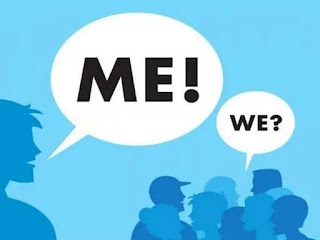Culture and Psychology
October 29, 2020 Culture and Psychology
The legend of Johnny Lingo says he is the sharpest trader in all the islands. After his many travels throughout the pacific islands, Johnny returns to his home island to negotiate for his most important investment yet, his bride. The villagers all gather around as the negotiations with her father begin. None of the villagers can believe that Johnny is really interested in Mahanna. They all believe he is the shrewdest trader of all and will get a bargain on ‘ugly Mahanna’. Even Mahanna thinks she is ugly and hides in the trees, watching the trade below her. Her father asks three cows for the hand of his daughter in marriage and the village laughs at such an outrageous offer for ‘ugly Mahanna’. Johnny knows how to make a bargain and offers, “eight cows for Mahanna”. Her father and the village are shocked at such a high price for Mahanna. They think he must be crazy or blind but Johnny Lingo is not crazy, blind, or even vain in wanting others to think he would pay the highest price ever for a wife. He knows true worth and beauty. It isn’t found in what the village values as such. After their honeymoon, Johnny and Mahanna return to the village and the village is shocked by the change in Mahanna. She is now radiant and more beautiful than they ever thought possible! Her father feels he was cheated! She is now “a ten cow wife!” Johnny just smiles. He knew the true beauty and value in Mahanna wasn’t in what the village culture thought of her but of what she thought of herself.
Culture can play a big part in our psychology. It can tell us what is acceptable or not, what is beautiful or ugly, even who is smart or athletic and who isn’t. According to Professor John Ivers this is called our ‘Ought-self’. These are things your culture says you ‘ought’ to be like. If you are good at the things your culture expects you to be good at, then your self-esteem will be higher. But if your ‘real self’ has skills that is not of value in your culture, your self-esteem will be lower.Culture can play a big part in who we think we are and what we think we are capable of doing. It’s interesting to note the stereotypes we put on people that aren’t necessarily true. Asians are better at math, African Americans are better athletes, or even men can only do certain things or women can only do certain things. In class this week, I saw an example. Our ELL class is made up of women with one man all from the same country. We are doing a unit on food and asking people to share what they can make. All of the women told a story of what they cook but our lone man says, ‘no, I don’t cook’. After explaining how to make a peanut butter sandwich, we asked him again if he can tell us a story of anything he makes. He finally says, “I like rice. I make rice.” The women all giggled and then teased him in their language. It seemed as though they were making fun of him thinking he thought he knew how to make rice. I then realize this was a part of their culture and asked him if he could tell us of how to make apple slices or peel a banana, anything that didn’t need to be cooked. But the gauntlet had been thrown down and he told a good story of how to make rice. In their culture, the men do not cook, the women do the cooking. This is how culture can tell us what we can and can’t do.
Culture assumptions can play with your head. It’s up to us to not let it stop us from becoming who we are meant to be. We all have talents that are valuable. We need to believe in our true selves and not let others dictate it to us. Albert Einstein said, “Everyone is a genius, but if you judge a fish by its ability to climb a tree, it will live its whole life believing it is stupid.” As ELL teachers, we need to be quick to notice when culture is playing a part in our classrooms and give the students and alternative way of thinking. Just like Mahanna, everyone has value. We just need to help each other recognize it.
Sources:
https://video.byui.edu/media/06+Culture+and+Psychology/0_s4h3d6bc
https://video.byui.edu/media/06+Culture+and+Psychology/0_s4h3d6bc




Comments
Post a Comment